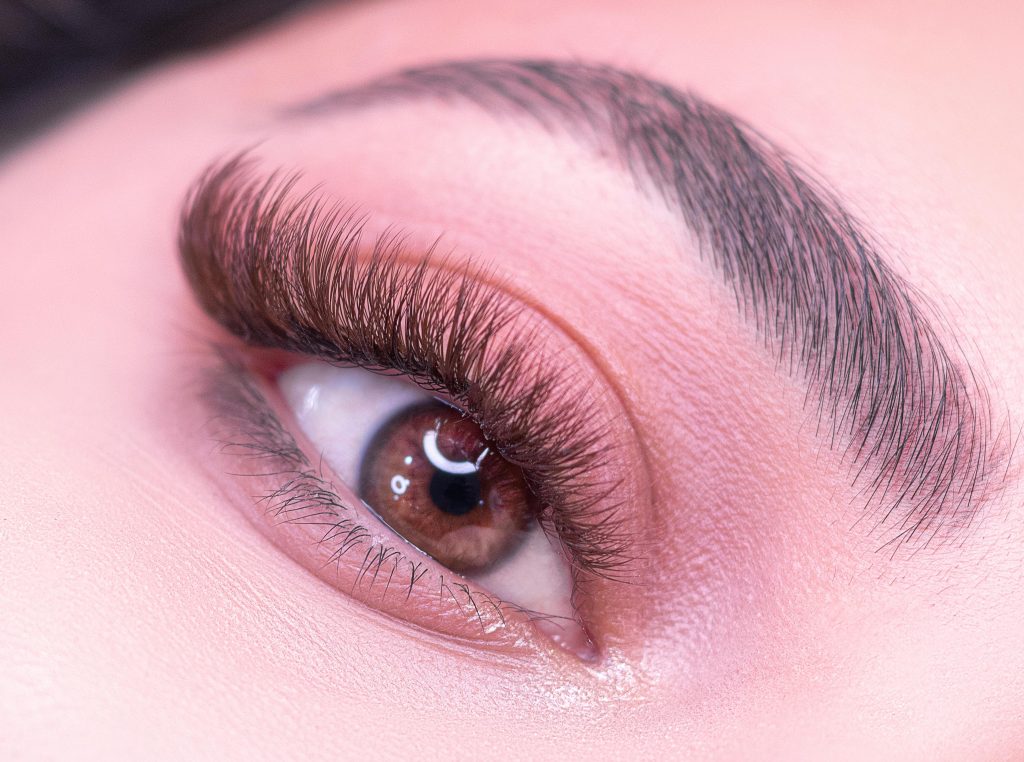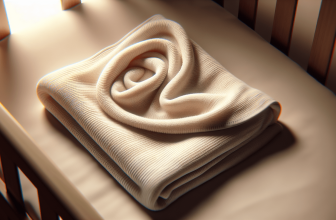In this article, we will explore the impact of fabric softeners on baby clothes and their delicate skin. As a parent, you want nothing but the best for your little one, and ensuring their comfort and well-being is of utmost importance. From examining the potential benefits of using fabric softeners to understanding the possible risks they may pose, we will provide you with valuable insights and recommendations to make informed choices for your baby’s clothing care routine. So, let’s dive into the world of fabric softeners and learn how they can affect your baby’s clothes and skin.
Introduction
Fabric softeners are products commonly used in laundry to make clothes feel softer, smoother, and more comfortable. They work by coating the fabric fibers with a thin layer of chemicals that help reduce friction and static electricity. When it comes to baby clothes, using fabric softeners becomes even more important. Baby clothes are often made of delicate materials and are in direct contact with the baby’s delicate skin, so it is crucial to prioritize their comfort and safety.
Potential Chemicals in Fabric Softeners
Fabric softeners contain a variety of chemicals, each serving a specific purpose in softening and conditioning the fabric. Some of the common chemicals found in fabric softeners include quaternary ammonium compounds (quats), fragrances, dyes, and preservatives. While these chemicals may be effective in achieving desired results, they also pose potential health risks.
Research has suggested that some chemicals used in fabric softeners, such as quats, can be irritating to the respiratory system and cause allergic reactions in some individuals. Fragrances and dyes used in fabric softeners may also contain allergens and can cause skin irritation or contact dermatitis. It is important to be aware of these potential risks, especially when it comes to using fabric softeners on baby clothes.

This image is property of images.pexels.com.
Effect on Baby Clothes
Fabric softeners provide several benefits when used on baby clothes. First and foremost, they help in softening and conditioning the fabric, making it gentle and comfortable against the baby’s sensitive skin. Additionally, fabric softeners can also enhance the durability of the fabric by reducing wear and tear caused by friction and repeated washing. This can be especially important for baby clothes that are often subjected to frequent washing due to spills and stains.
Furthermore, fabric softeners can also have an impact on the color retention of baby clothes. By reducing friction and maintaining the integrity of the fabric fibers, fabric softeners can help prevent color fading, allowing baby clothes to retain their vibrant and appealing appearance for longer periods. Lastly, fabric softeners may affect the flame resistance of baby clothes, potentially compromising their safety in case of fire. It is essential to consider these factors when deciding whether or not to use fabric softeners on baby clothes.
Impact on Baby’s Skin
The most significant concern when using fabric softeners on baby clothes is their potential impact on the baby’s delicate skin. Babies have thinner and more sensitive skin compared to adults, making them more susceptible to irritation and allergic reactions. Certain chemicals found in fabric softeners, such as fragrances and dyes, can pose a risk of skin irritation or allergies in babies.
Dermatologists generally recommend avoiding scented fabric softeners and opting for fragrance-free options when it comes to washing baby clothes. Fragrance-free fabric softeners are less likely to contain potential allergens that may cause adverse reactions on the baby’s skin. Additionally, it is important to be mindful of the sensitivity of the baby’s skin to chemicals and consider alternative methods to soften baby clothes without relying solely on fabric softeners.

This image is property of images.pexels.com.
Babies with Existing Skin Conditions
For babies who have existing skin conditions, using fabric softeners requires extra caution. Eczema, a common skin condition in babies, can be aggravated by the chemicals present in fabric softeners. The fragrances, dyes, and preservatives can further irritate eczema-prone skin, leading to flare-ups and discomfort for the baby.
Moreover, the use of fabric softeners can also impact the baby’s skin microbiome. The delicate balance of bacteria and microorganisms on the skin can be disrupted by certain chemicals, potentially leading to increased vulnerability to infections and other skin issues.
In such cases, it is crucial to consult with a dermatologist or pediatrician for personalized recommendations. They may suggest avoiding fabric softeners altogether or using specific brands formulated for sensitive skin. Special consideration and care are necessary when dealing with babies with sensitive or problematic skin conditions.
Safe Fabric Softeners for Babies
When choosing fabric softeners for baby clothes, it is important to look for products specifically labeled as safe for babies. These types of fabric softeners typically prioritize using milder and hypoallergenic ingredients that are less likely to cause skin irritations or allergies. Plant-based fabric softeners are a popular choice as they often contain natural ingredients and are free from harsh chemicals.
Reading the labels of fabric softeners carefully is essential to identify safe and suitable products for babies. Look for products that are fragrance-free, dye-free, and labeled as hypoallergenic. Avoid fabric softeners that contain chemicals that are known to cause skin irritations or allergies, such as phthalates and formaldehyde-releasing compounds. Opting for fragrance-free options is particularly important as fragrances can potentially trigger skin reactions in babies.

This image is property of images.pexels.com.
Tips for Using Fabric Softeners on Baby Clothes
When using fabric softeners on baby clothes, it is important to follow some guidelines to ensure the safety and effectiveness of the product. Proper dosage and dilution are crucial to avoid over-application of fabric softeners. Follow the instructions provided on the fabric softener packaging, and avoid using more than the recommended amount.
Pre-washing or rinsing baby clothes before using fabric softeners can help eliminate any potential residue or irritants. This step can be especially beneficial for babies with sensitive skin or those who are prone to skin allergies. Additionally, it is important to avoid excessive use of fabric softeners, as this can lead to build-up on the fabric and potentially cause further skin irritation.
The frequency of washing baby clothes with fabric softeners depends on personal preference and the sensitivity of the baby’s skin. Some parents may choose to use fabric softeners for every wash, while others may opt for using them occasionally. Observing any changes in the baby’s skin and monitoring for any signs of irritation or allergies can help determine the frequency of fabric softener usage.
Alternatives to Fabric Softeners
If you prefer to avoid using fabric softeners on your baby’s clothes altogether, there are alternative methods to achieve soft and comfortable fabrics. Natural fabric softeners, such as vinegar or baking soda, can be used during the rinse cycle to help soften the fabric. These options are often gentler and less likely to cause skin irritations.
Another alternative to fabric softeners is the use of dryer balls or sheets. Dryer balls are typically made of wool or other materials and work by separating the fabrics in the dryer, allowing better air circulation and reducing static electricity. Dryer sheets can also be used to achieve similar effects. These alternatives are generally considered safer options for baby clothes and are particularly useful for reducing static cling.
Opinions and Experiences
It is always beneficial to consider different perspectives and experiences when it comes to using fabric softeners on baby clothes. Pediatricians often provide valuable insights and recommendations based on their expertise and knowledge. Consulting with a pediatrician can help gain insight into the potential risks and benefits of using fabric softeners, especially for babies with specific health conditions or concerns.
Parents’ experiences and recommendations are also valuable sources of information. Online communities and forums dedicated to parenting often discuss topics related to baby care, including the use of fabric softeners. Reading about other parents’ experiences and hearing their recommendations can provide a broader perspective and help make informed decisions regarding fabric softeners and baby clothes.
Conclusion
Fabric softeners play a significant role in making baby clothes softer, more comfortable, and pleasant to wear. However, it is crucial to be aware of the potential impact of fabric softeners on baby clothes and skin. Some chemicals found in fabric softeners pose potential health risks, especially for babies with sensitive skin or existing skin conditions.
When choosing fabric softeners for baby clothes, it is important to prioritize safety by opting for baby-friendly products. Reading labels carefully, choosing fragrance-free and hypoallergenic options, and following proper dosage and usage guidelines are essential steps in ensuring the well-being of the baby’s skin.
Considering alternative methods to soften baby clothes without relying solely on fabric softeners is also worth exploring. Natural options and the use of dryer balls or sheets can provide effective alternatives while minimizing the potential risks associated with traditional fabric softeners.
Lastly, it is valuable to consider the opinions and experiences of medical professionals and fellow parents when making decisions about fabric softeners and baby clothes. By weighing the benefits, risks, and individual circumstances, parents can make informed choices that prioritize their baby’s comfort and safety.








